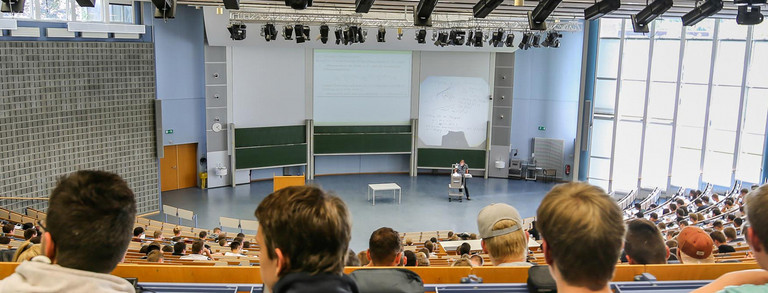Biochemical Engineering, Specialization Biopharmaceutical Engineering
Summary
| Degree | Master of Science (M.Sc.) |
|---|---|
| Subject group | Engineering Sciences |
| Standard program duration | 4 semesters |
| Admission requirements |
none
|
| Start of studies |
Winter semester
|
| Language | English |
| Enrollment requirements | |
| Further information | Website of Department of Biochemical and Chemical Engineering |
| Department | Biochemical and Chemical Engineering |
Overview
Biopharmaceuticals and cell products are among the most important growth areas in the pharmaceutical industry. The manufacturing of these products requires specific qualifications and extensive training. The master's program focuses on the interpretation of process data in order to improve the production of biopharmaceuticals. Students will learn how to design and operate complex pharmaceutical production systems using mathematical models and modern computer tools for simulation and optimization. Graduates will also have mastered the methods of process development and monitoring. Furthermore, knowledge of the regulatory requirements in drug production is taught – from Good Manufacturing Practices (GMP) to the guidelines on serialization and anti-counterfeiting protection.
Skills and knowledge
This master’s program requires a Bachelor of Science degree in Bioengineering, Chemical Engineering, Environmental Engineering, Life Science Engineering, or related disciplines.
Moreover, all applicants must provide an official English language certificate (e.g., TOEFL, IELTS, or Cambridge First Certificate). Knowledge of German is advantageous, but not mandatory.
Field of activity
Individuals who combine expertise in engineering and biotechnology are urgently sought in industry. Possible fields of employment include the planning, monitoring, control and evaluation of cell culture processes, the assurance of product quality (quality management) and the research and development of production and formulation processes. Graduates have excellent career prospects in the pharmaceutical industry and related sectors, such as the biotechnological industry, the food industry or the cosmetics industry. In addition, graduates with a master’s degree in biopharmaceutical engineering are involved in the legal approval of manufacturing plants and processes.
Additional information
All lectures, exercises, and seminars in the first semester are offered as hybrid courses, so that international students who are still waiting for their visa can participate.
More information on the study program can be found on the website of the Department of Biochemical and Chemical Engineering.





![[Translate to English:] Partner Four hands are holding the green logo of TU Dortmund University](/storages/tu_website/_processed_/1/d/csm_Partner_Nicole_Rechmann_KW_670eba0154.jpg)




![[Translate to English:] Forschung An apparatus with tubes in a laboratory](/storages/tu_website/_processed_/0/c/csm_Forschung_Juergen_Huhn_4fa3153b51.jpg)
![[Translate to English:] Studium Five students are sitting in a lecture hall. They are talking to each other.](/storages/tu_website/_processed_/c/9/csm_Studium_FelixSchmale_dbdbfb0dd7.jpg)





